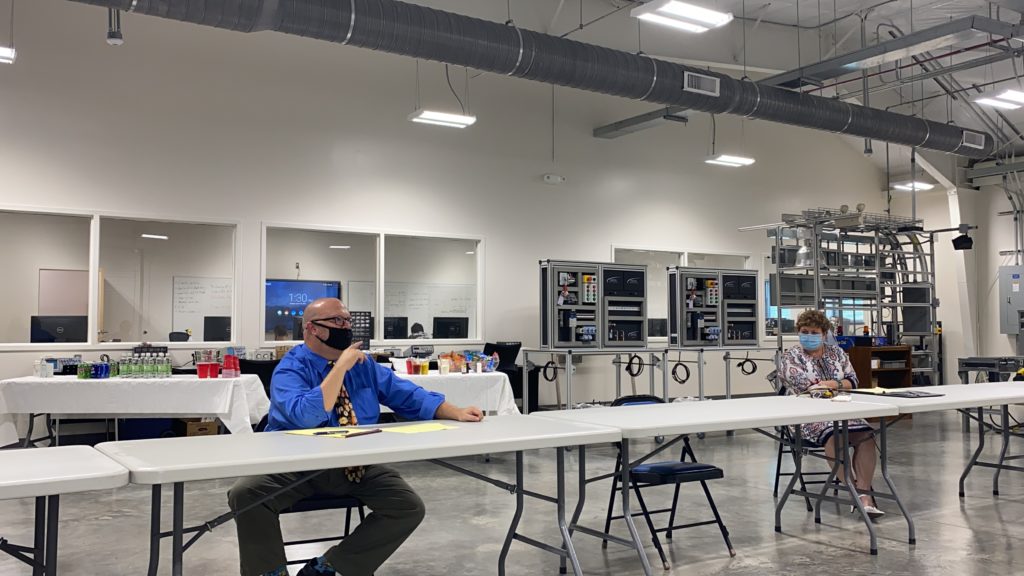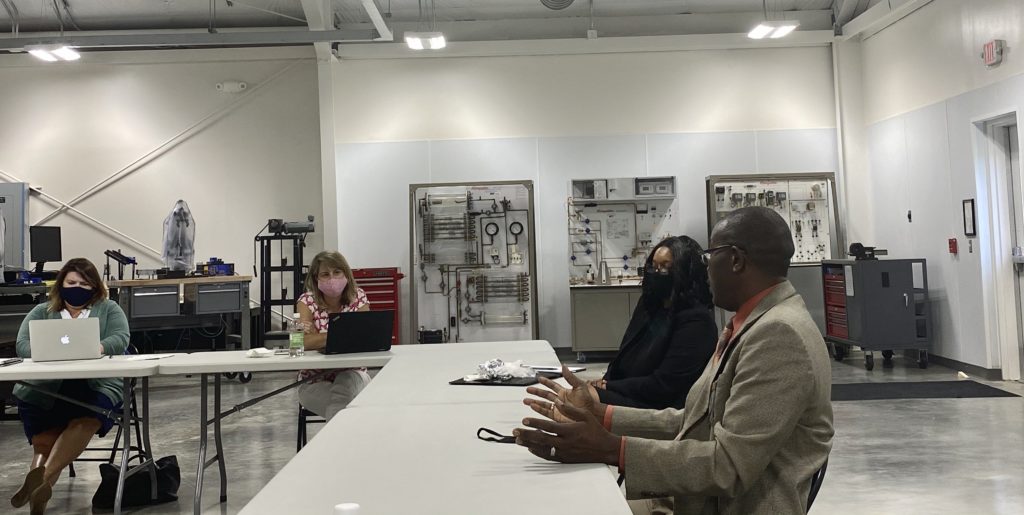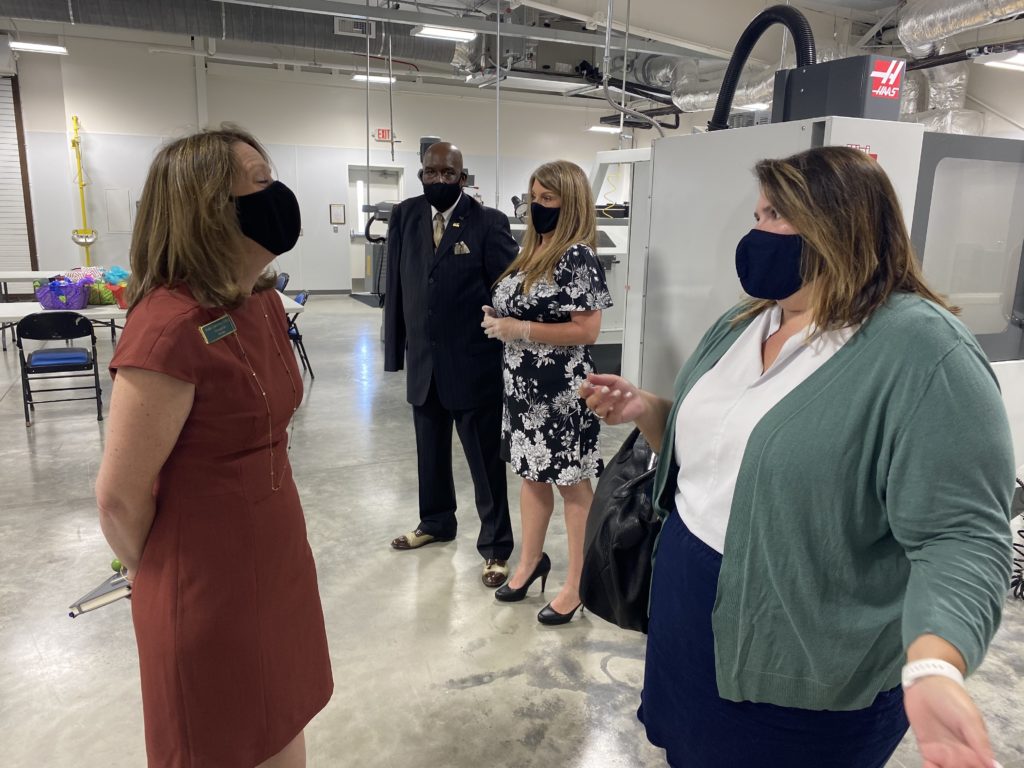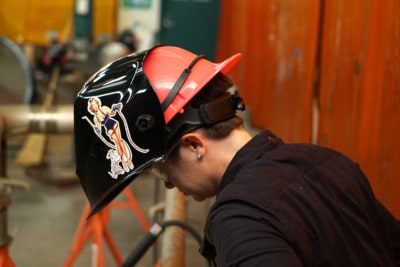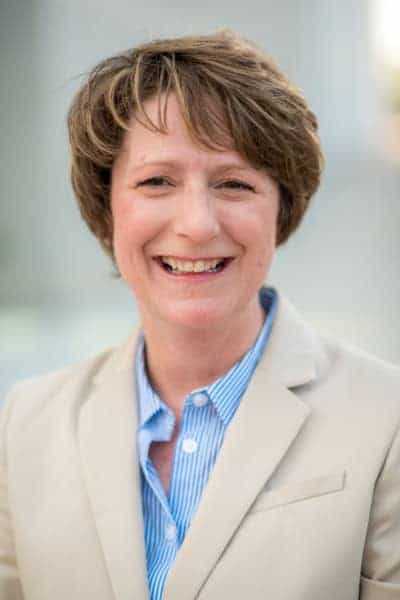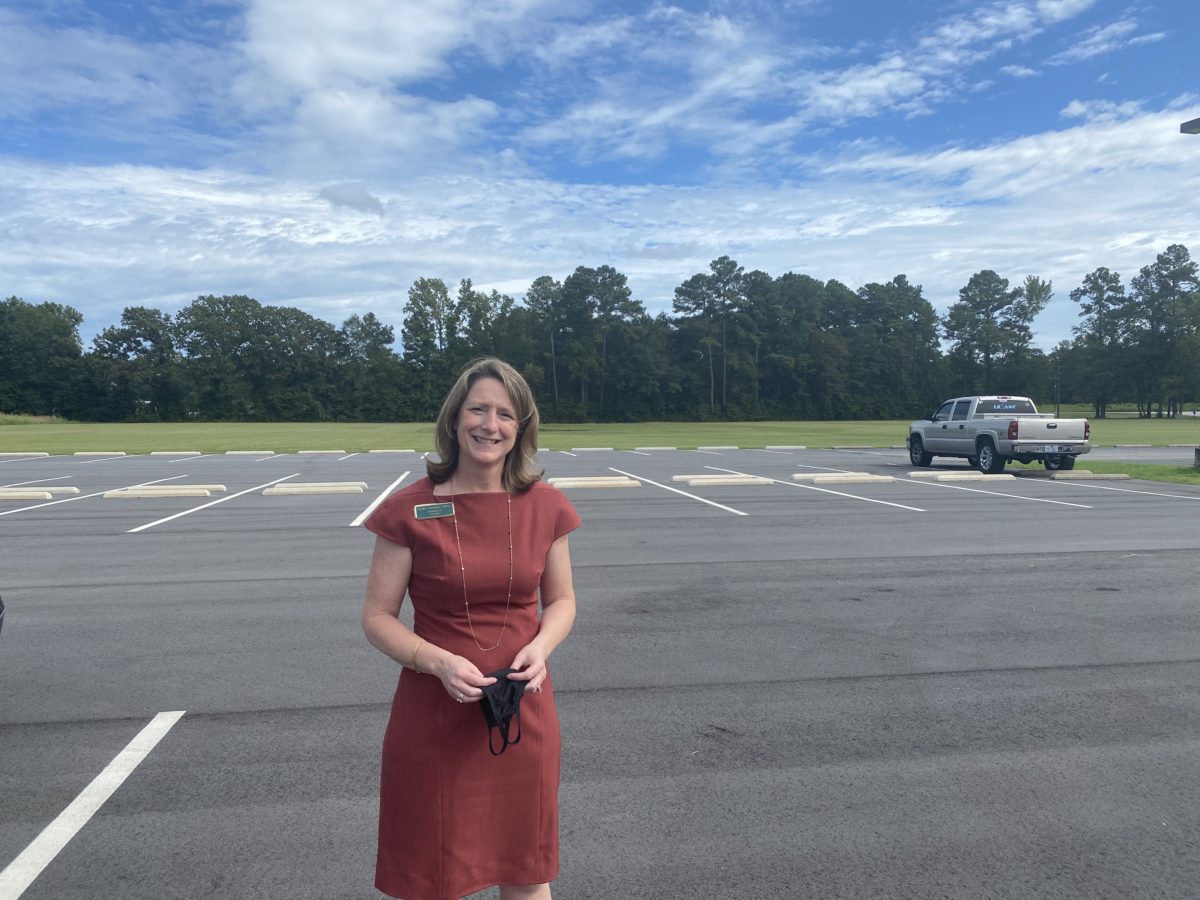

Amanda Lee assumed the role of president of Bladen Community College on Feb. 1, 2019. She brought a lifetime of higher education experience to the job, but every leader has had to design a new playbook in the face of COVID-19.
“We hope to keep the good innovations, and shed the bad,” Lee said when I asked her what she hopes Bladen Community College will bring along when the pandemic subsides.
Lee said the role of a community college president requires you to constantly think ahead and anticipate the shifts and turns. “Nobody anticipated this particular turn,” she said, “but … we all try to be as prepared for the uncertainty ahead of us as possible.”
We had a series of conversations with Bladen Community College and Bladen County leaders over the course of a muggy afternoon in Dublin. Again and again, those leaders referenced the resilience of their community in the face of natural disasters as a defining characteristic that had prepared their community for the pandemic.
Yet as other education leaders have noted, natural disasters are temporary, even if recovery can take time. Lee pointed out the rolling nature of the pandemic as one of many factors that make the day to day of COVID-19 so difficult.
“How long can you maintain the sense of urgency and the sense of emergency?” she said. “How long do you do a drill before the drill? … It’s hard for everybody.”
One other lesson from past natural disasters is the importance of communication for students, prospective students, faculty, and staff. Lee said the college is continuing to experiment with methods, including partnering with local media outlets and social media. Yet one of the more successful approaches so far seems to be the old-fashioned approach of a phone call followed up by written communication.
Jay Stanley, vice president for finance and administration, pointed out that one advantage Bladen Community College brought to the table was an early investment in distance education for a small, rural community college.
“We’ve done distance education really well historically,” Lee said. “We’ve responded to hurricanes. And this allowed us to feel somewhat ready.”
While their investment in distance ed allowed them to shift instruction online with relative ease and speed in the spring when the pandemic hit, they did have to reallocate resources quickly. They collected as many laptops, docking stations, and hot spots as possible to help faculty who lacked sufficient supplies.
Lee pointed out that internet connectivity numbers are not strong in Bladen County, but the numbers are even starker when you consider how many students and faculty primarily access the internet through their cell phones when at home. Lee wryly asked if we had ever written an essay on an iPhone. And of course, phones don’t come with printers, either.
Another complex decision point for Bladen Community College is defining who will be the backup if an employee falls ill with COVID-19. Backup plans and contingencies are being built into functions ranging from teaching to operations. This element of their work connects back to Lee’s own desire to make sure that as president, she is constantly looking ahead to evaluate uncertainties.
Lee told me that Bladen is “one deep” at many of its positions — meaning that initially, the school did not have an obvious backup plan for faculty and staff. She said they even held conversations with other nearby community colleges who might be able to provide, for example, IT or payroll support if key staff members in those roles fell sick.
Looking ahead
Lee began her career in higher education initially through teaching at Baylor and Texas A&M. In time, she made her way to the community college side of higher education.
“The community college, for me, was a perfect fit,” she told me. “I love the student-centered aspect that you have here in local community colleges. And I just love being with the students. I love watching them learn; I love being part of that journey. It really is just wonderful.”
As Lee looks ahead, she reminds her team that one day more students will return to campus, but even before that, the school must be focused on its primary goal. When I asked her what keeps her up at night, her answer directly tied to those students and their life outcomes: “Our students must be able to graduate and find a career.”
For Bladen Community College, and other community colleges across the state, funding stability and additional funding for workforce development will be essential, Lee said.
If you wish to keep up with future legislative action and North Carolina’s community colleges, sign-up for Awake58 below.
The recent allocation of funding for short-term workforce development scholarships through the governor’s GEER fund is one reason for optimism for the Bladen Community College leadership team, given that they believe continuing education and short-term workforce development will be the essential role of their institution moving forward.
And all of these discussions are against the backdrop of statewide and national concerns around higher education enrollment during the pandemic. Lee noted that one of the big concerns for college leaders will be budget challenges due to any decline in enrollment during the pandemic.
“In my time with the system, we’ve certainly gone from being the redheaded stepchild (when it comes to funding),” Lee continued. “And then the recession arrives, where all of a sudden we really had an impact in getting the state out of the recession. And so through some of these very tangible things we have been seen very differently. I hope that that is not forgotten quickly.”
Lee went on to say that she hopes policymakers will remember the Great Recession. She said her message to those in positions of power would be: “Do not forget our role and how vital it is. I hope legislators will continue to back us financially … and allow us some flexibility and give us some stability. And the thing that I hope they also see is that as a system, we are so strong, and work together so well.”
Lee and her team hope that Bladen Community College will continue to have programs that are seen as innovative within their community, as well as gain the resources to have the kind of innovative equipment that their graduates will see out in the workplace. Moving forward, they also hope to play a role in fostering small businesses in the area.
The key in all that they do moving forward, according to Lee and her team, is tying together the day-to-day operations of the college with a student-centered, people-focused approach that they hope will define Bladen Community College’s future moving forward. If they succeed, the future of Bladen Community College will be shaped, in part, due to the same passion that led Lee into higher education in the first place.


